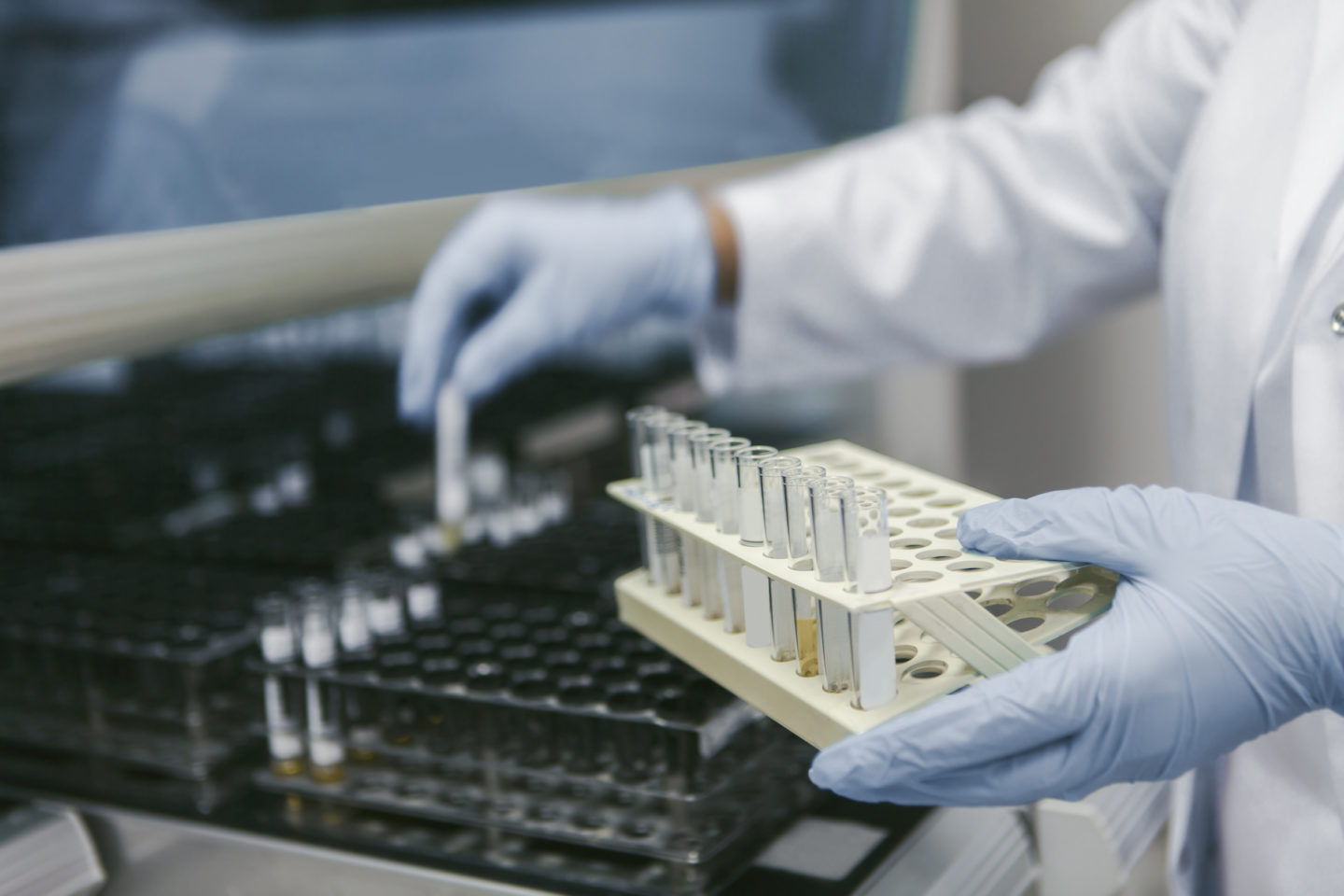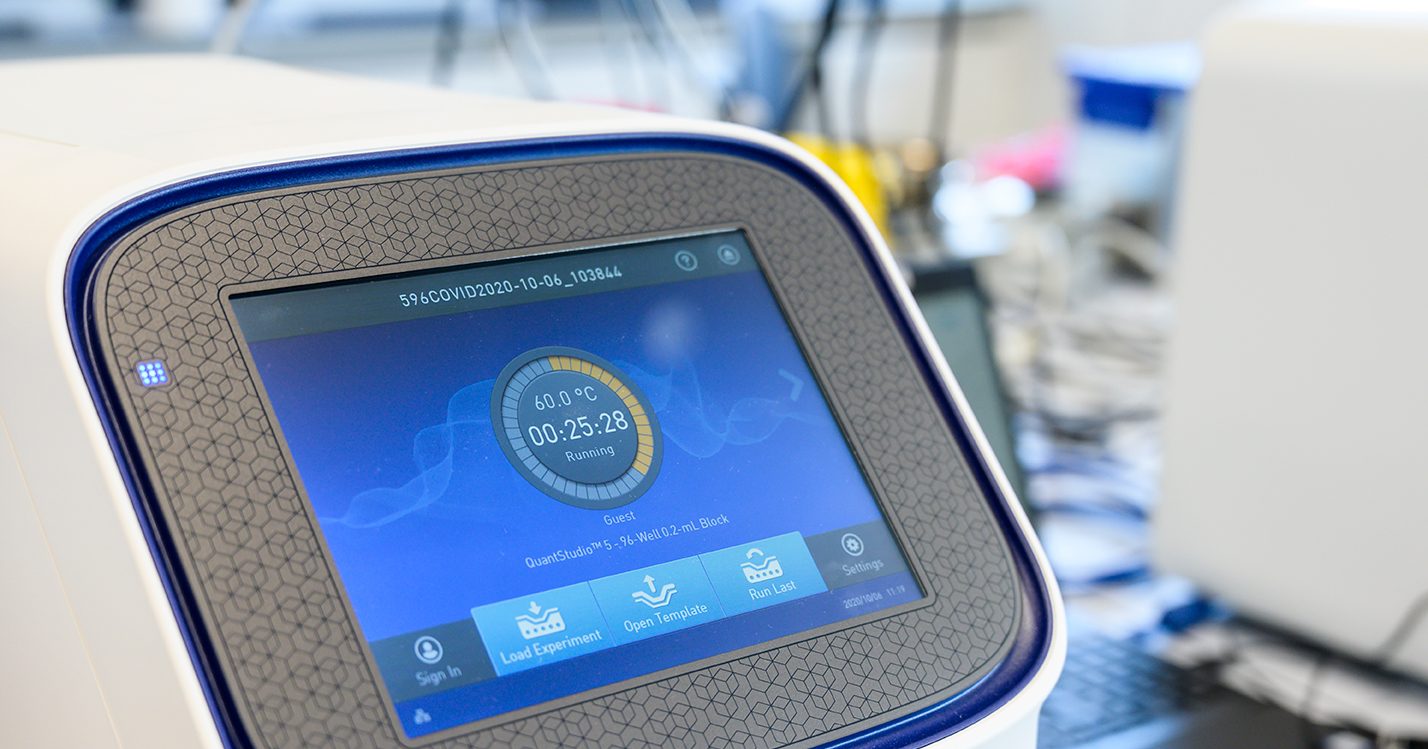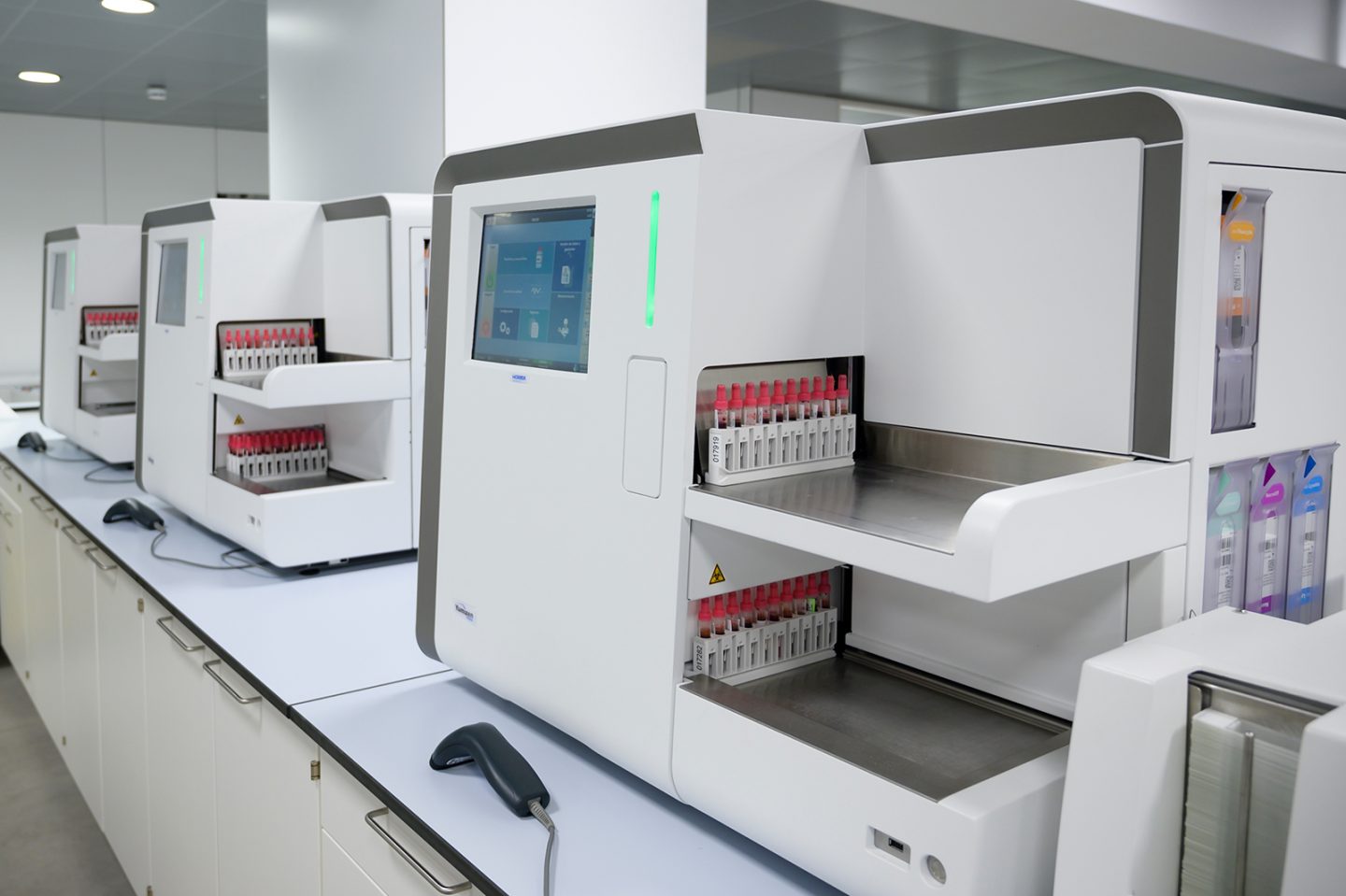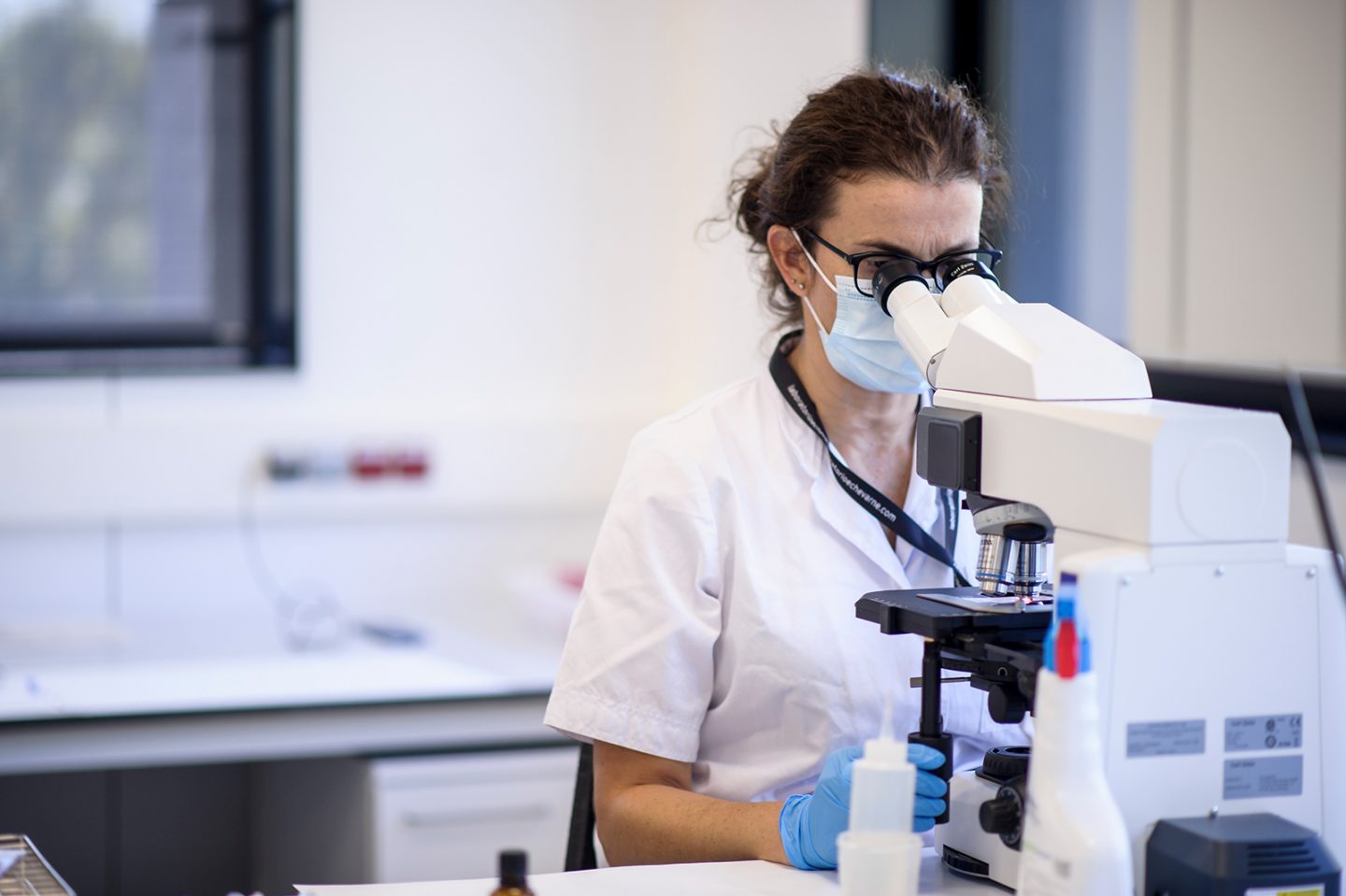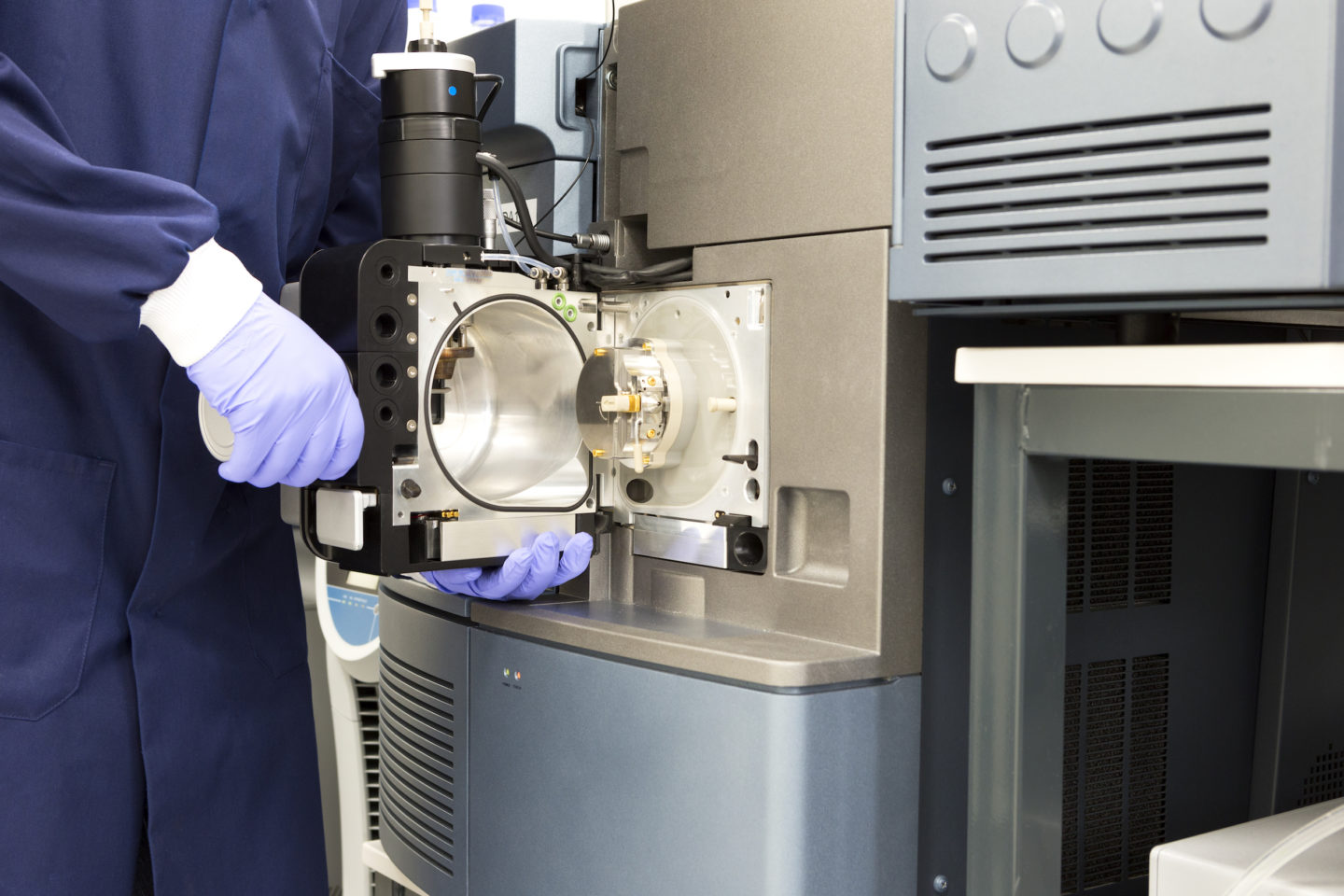Allergy
The Allergy unit works with paediatricians and allergists, as well as other specialists, to:
- Diagnose allergic pathology, quantifying parameters such as total IgE, eosinophil cationic protein, tryptase and histamine through various types of samples.
- Identify possible allergens responsible for allergic pathology by studying the presence or absence of specific IgE against a broad battery of respiratory allergens, food allergens, certain occupational allergens, drug allergens, insect venom and recombinant allergens.
- Monitor patients undergoing hyposensitisation therapy.
The unit also works with gastroenterologists and nutritionists studying food intolerances to improve the quality of life of patients with gastrointestinal disorders and other associated pathologies.
Fluoroimmunoassay
- Detection of specific IgE against native and recombinant allergens
- Detection of specific IgG against native and recombinant allergens
- Detection of specific IgG4 against native and recombinant allergens
- Quantification of tryptase and eosinophil cationic protein
Enzyme-linked immunosorbent assay
- Quantification of histamine in plasma and urine
Inmunoblot
- Food Intolerance
Micro-array
- Detection of specific IgE against recombinant allergens
Functional tests
- Cellular activation by allergens
- Histamine release test
Hormones
The Hormones unit offers a reliable tool for medical specialists that allows them to take an analytical approach to the different functional aspects of pathologies related to their respective clinical areas, these being mainly endocrinology, oncology and prenatal diagnosis.
In the field of endocrine pathologies, the unit routinely performs a large number of serum, plasma, urinary and salivary parameters that allow doctors to see that all endocrine glands are functioning properly and, in turn, ensure that all hormonal axes are correct through the use of functional tests.
Oncology mainly focuses on determining tumour markers, along with other parameters, that allow the clinical oncologist to diagnose, characterise, treat and monitor the evolution of the patient.
In relation to prenatal diagnosis, using biochemical markers and along with sonographic markers, it seeks to individually establish the risk of having a pregnancy affected by chromosomal abnormalities in the first trimester and by chromosomal abnormalities and neural tube defects in the second trimester.
Radioimmunoassay
(gamma/beta)
- Hormone analysis
- Detection of antibodies against hormone receptors
- Vitamins and cofactors
Automated chemiluminescence system
- Screening for preeclampsia
- Study of fertility-related hormones
- Tumour markers
- Detection of antibodies against hormone receptors
Enzyme-linked immunosorbent assay
- Hormone analysis
Immunology
The Immunology unit offers support to professionals from different medical specialties in the diagnosis, monitoring and evolution of different pathologies, including those with an auto-immune, infectious, haemato-oncological, rheumatic and immunodeficiency origin, among others.
Within the scope of infectious serology, this unit makes use of numerous decision algorithms that are used to facilitate discrimination between current/recent infections and the presence of residual antibodies (immunity), especially in the case of serologies related to pregnancy. The unit has different analysis methods at its disposal for the same test, in order to offer greater understanding of the result.
In the area of autoimmunity, the laboratory offers an extensive catalogue of tests ranging from non-specific organ antibodies to multiple specific antigens. The presence of antibodies against tissue and organ-specific antigens is detected using indirect immunofluorescence on Hep2 cells, Crithidia luciliae or tissue preparations, reserving the ELISA, RIA and Immunoblot techniques for the detection of antibodies against specific antigens.
In the area of immunodeficiencies and haemato-oncological diseases, techniques for phenotyping haematological cells, quantification of lymphoid cells, immunoglobulins, complement factors and plasma proteins converge.
Detection of autoantibodies by Indirect Fluorescence (IFI)
Detection of antibodies specific to neuronal antigens (immunoblot and IFI)
Detection of antibodies related to systemic autoimmune diseases (IFI, ELISA, multiplex and immunoblot)
Detection of antibodies related to organ-specific autoimmune diseases (IFI, ELISA and immunoblot)
Serology of infectious diseases
- Viral, bacterial and parasitic serology through chemiluminescence, multiplex and IFI
Flow cytometry
- Lymphocyte populations Study of leukocyte antigens (HPN, leukaemia typing) Study of HLA-B27 antigen Fertility studies Diagnosis of autoimmune haemolytic anaemia Monitoring of Borrelia infection ILM profile
Immunochemistry
- Quantification of immunoglobulins and plasma proteins
Enzyme-linked immunosorbent assay and multiplex
- Proteins related to inflammation in osteoporosis

